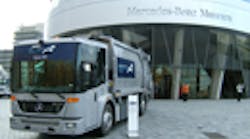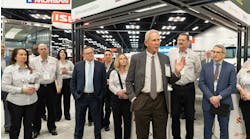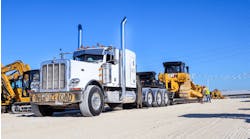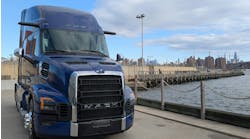In an effort to foster “sustainable mobility” worldwide, Germany’s Daimler AG is developing trucks and buses powered by alternative fuels and drivetrain technologies aimed at lessening or even eliminating reliance on petroleum alone to fuel commercial vehicles around the world.
“The fact is we cannot do without trucks and buses,” said Andreas Renschler, head of Daimler’s truck and bus division, during a conference entitled “Shaping Future Transportation” held at the Mercedes Benz Museum in Stuttgart, Germany.
Renschler said annual sales of new trucks and buses is expected to increase 50% over the next 10 years, from 3.85 million light, medium and heavy trucks last year to 5.41 million units by 2017. This would keep up with a 2.5% annual growth rate in both rail and road freight tonnage worldwide.
At the same time, mandated reductions in vehicle emissions on a global scale combined with rising fuel prices is adding to the cost burden truck and bus fleets are facing, said Wolfgang Warnecke, global manager of automotive fuels development for Royal Dutch Shell.
“Transportation continues to be primarily fueled by oil, but emerging markets – such as China and India – are going to have a major impact on global energy demand,” Warnacke said. “That’s why alternative fuels are going to be so important for us in the future, in terms of energy security and environmental protection. But the cost and economic of operating on alternative fuels will be a major challenge for us all. We must find solutions that are ultimately marketable to the commercial vehicle industry.”
Daimler is moving ahead full steam with work on a plethora of alternative fuel and drivetrain technology initiatives for its various global truck and bus products, including biodiesel, ethanol, natural gas, fuel cells, and hybrid systems, both diesel-electric and fuel cell-electric hybrid systems, Daimler’s Renschler said.
In Europe, Daimler is testing natural gas powered versions of its Mercedes Benz Econic 26-ton refuse trucks and fuel cell plus fuel cell-electric hybrid versions of its Citaro buses. Daimler will also test 12-ton and 7.5-ton diesel-electric hybrid versions of its Atego medium-duty truck with DHL in Europe. The 12-ton Atego will use the hybrid truck platform developed in the U.S. with Eaton for its Freightliner M2 product, while the 7.5-ton Atego will deploy a hybrid system from Mitsubishi Fuso, in which Daimler owns a controlling stake.
Daimler will also test 10 diesel-electric hybrid Canter Eco trucks from Mitsubishi Fuso in the United Kingdom with DHL, Britain’s Royal Mail, and TNT Logistics, among others. Renschler added that Daimler will also expand sales of its Orion VII diesel-electric bus both in the U.S. and Europe.
Work is also continuing on diesel-electric hybrid versions of Daimler’s Sprinter van, including a plug-in hybrid version whereby the batteries can be recharged overnight via shore power without running the engine. Dominique Portmann, senior manager-alternative drive systems for Mercedes Benz vans, told FleetOwner that plug-in hybrid versions of the Sprinter cost “several thousand Euros more” than a diesel-only version of the van aimed at the U.S. market, and will remain in prototype testing for the next two years at least.
Yet alternative fuel and drivetrain technology will continue to face challenges in the future, Renschler cautioned, as overcoming their cost of operation and developing refueling infrastructures for hydrogen (needed to power fuel cells), natural gas, ethanol, and biodiesel remain major hurdles.
“We also don’t just want to replace gasoline or diesel with these alternatives – we want to outperform them,” he said. “We will also see broad use only if the demand and profitability is there. For what good is having the most environmentally-sensitive truck if it never leaves the showroom?”



